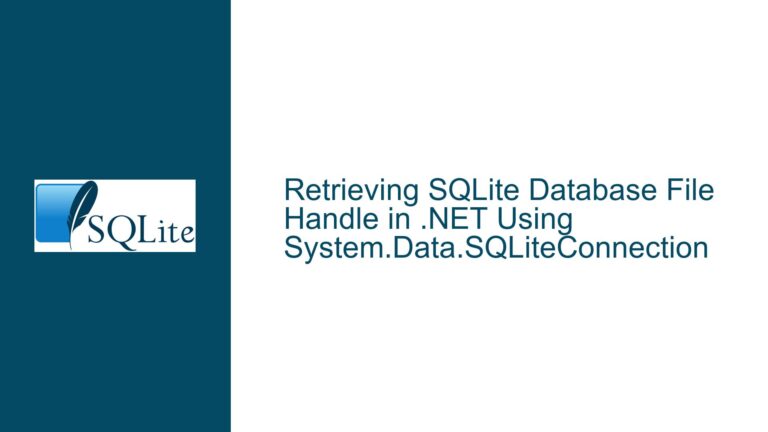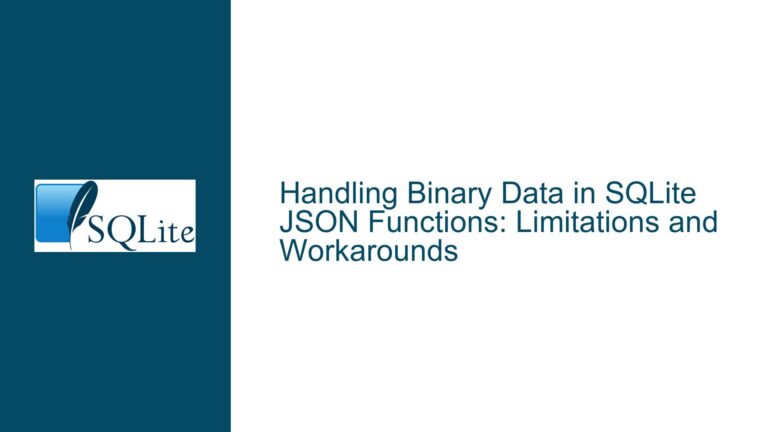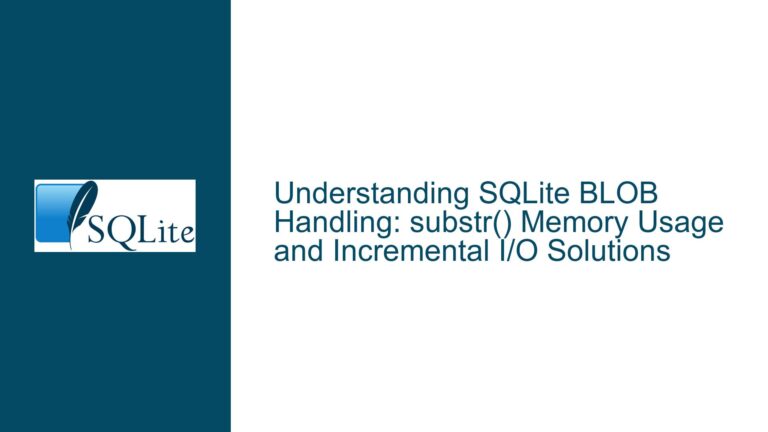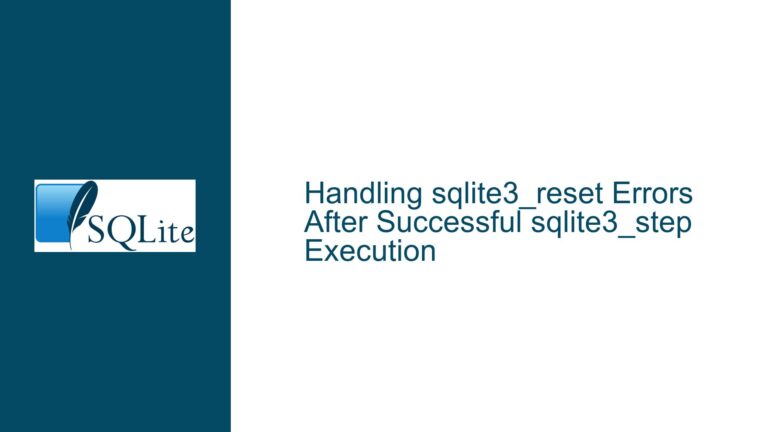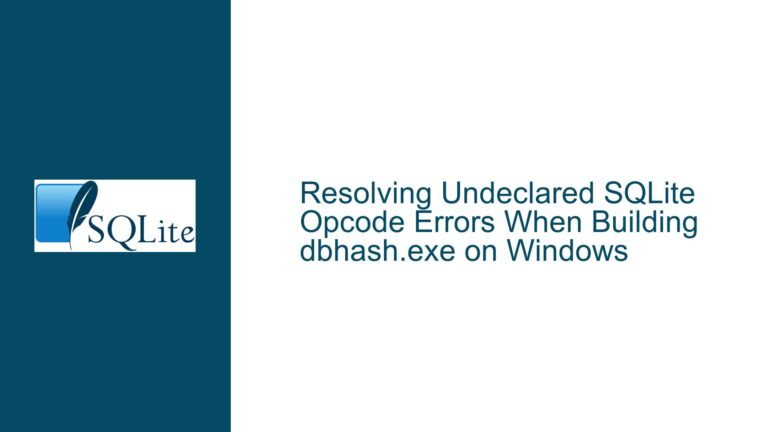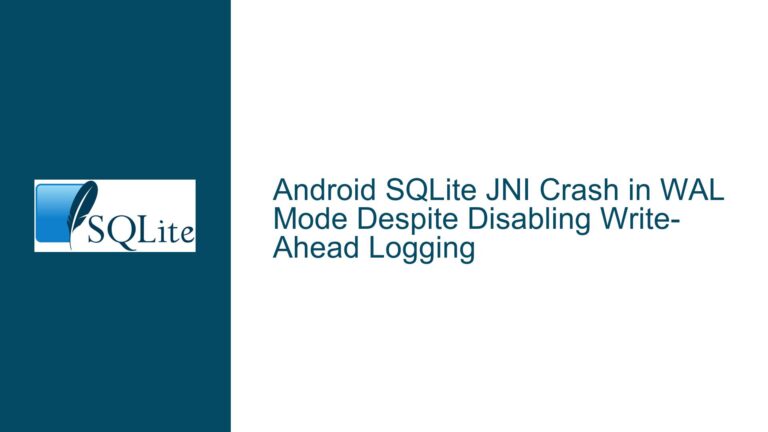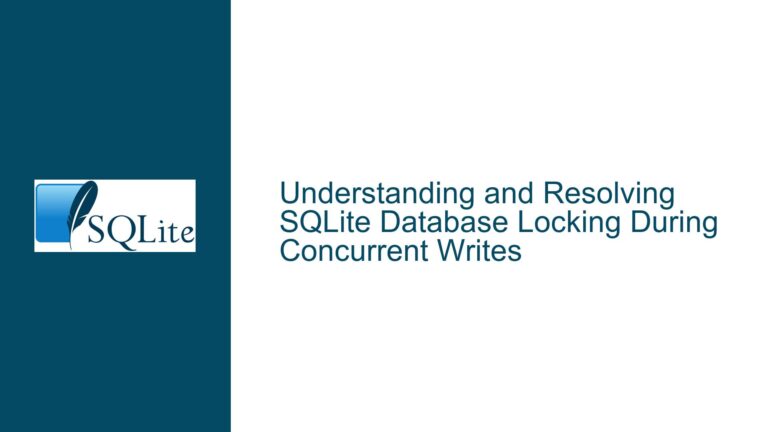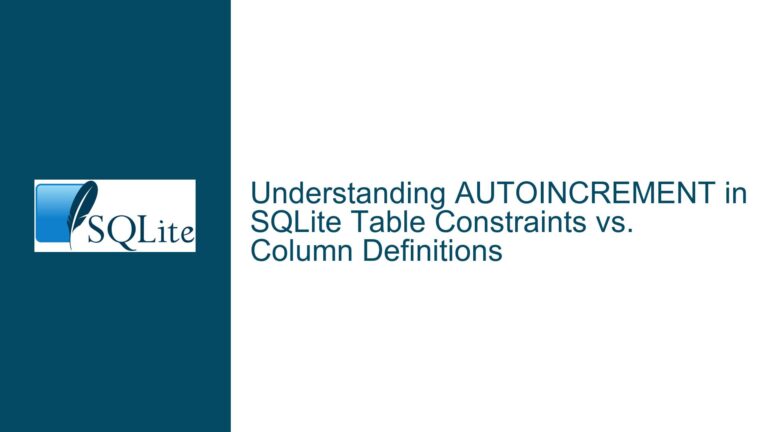Retrieving SQLite Database File Handle in .NET Using System.Data.SQLiteConnection
Accessing Native Database File Handle in System.Data.SQLiteConnection When working with SQLite databases in a .NET environment, particularly using the System.Data.SQLiteConnection class, there are scenarios where direct access to the native database file handle or file descriptor is required. This need often arises when performing low-level operations on the database file, such as reading its contents…
